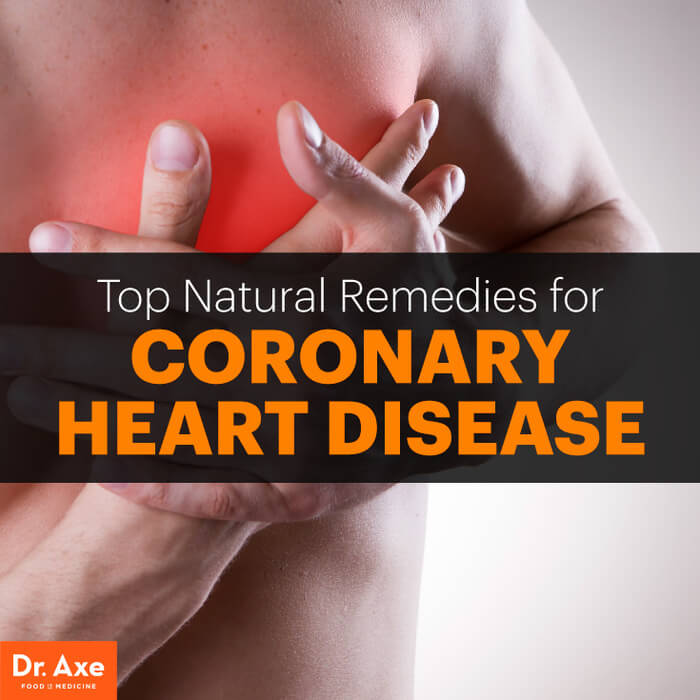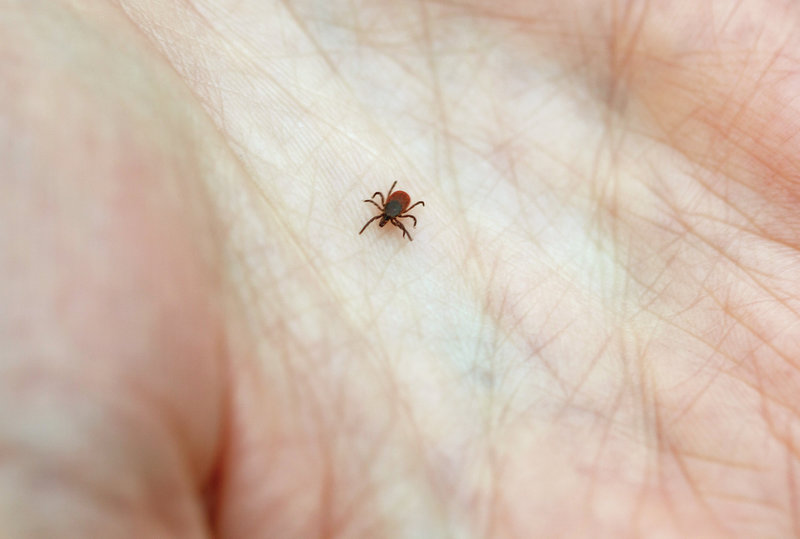Top Natural Remedies for Coronary Heart Disease
Coronary heart disease (CHD), currently the leading cause of death in the United States for adult men, is a condition caused by the buildup of waxy plaque in the arteries that flow to and from the heart.
Coronary heart disease also goes by some other common names, including coronary artery disease, heart disease and arteriosclerotic heart disease. CHD occurs when the small blood vessels that supply blood and oxygen to the heart narrow and sometimes harden, which over time can cause ruptures, heart attacks and other fatal conditions.
For the past several decades, clot-busting prescription drugs, tiny balloons implanted to open up arteries and bypass surgeries have all been on the rise. The result is that today coronary heart disease is considered more chronic than necessarily fatal, although these treatments are really resolving symptoms rather than the underlying causes of the disease.
All of these disorders are related to elevated inflammation levels — and as you’ll learn, by reducing inflammation, the root of most diseases, you place your body in a state that is conducive to healing. Here’s the good news: many whole foods that are available in common grocery stores can help reverse coronary heart disease and lower your risk for developing various forms of cardiovascular disorders.
New Evidence: How to Reduce Genetic Heart Disease Risk
A 2016 study found that living a healthy lifestyle by exercising, eating a healthy diet full of fruits, vegetables and grains and not smoking can lower your risk of heart disease — even if you are genetically predisposed to the disease. The study looked at 55,685 participants total in three prospective cohorts and one cross-sectional study. According to The New York Times:
“The investigators found that genes can double the risk of heart disease, but a good lifestyle cuts it in half. Just as important, they found, a terrible lifestyle erases about half of the benefits of good genetics.”
The individual results of each study were impressive. In the first study, when participants with the highest genetic risk followed a healthy lifestyle, they cut the 10-year likelihood of heart disease to 5.1 percent from 10.7 percent. In the second study, the high-risk and healthy lifestyle participants’ 10-year risk dropped from 4.6 percent to 2 percent. In the third study, participants risk went from 8.2 percent to 5.3 percent. In the final study, participants with a high genetic risk living a healthy lifestyle had significantly less calcium in their coronary arteries, which is a sign of CHD.
This ground-breaking research illustrates that you can naturally reduce your risk of heart disease. Let’s look at what foods, supplements, essential oils and lifestyle changes you can implement to achieve greater health and fight off coronary heart disease.
Symptoms of Coronary Heart Disease
According to the University of Maryland Medical Center, some symptoms of CHD can be very noticeable, however, it’s also possible to have this disease and experience no symptoms at all or only slight symptoms. Therefore, not everyone who has CHD even knows it — especially people who are in the early stages.
Pain varies a lot from person to person. The most common noticeable sign of CHD is having chest pain or discomfort, which is caused when the heart is not getting enough blood or oxygen.
Other types of symptoms can include:
- Feeling a “heaviness” or like someone is squeezing your heart
- Pains or numbness in your breast bone (sternum), neck, arms, stomach or upper back
- Shortness of breath and fatigue with activity
- General weakness
History and Root Causes of Coronary Heart Disease
Half a century ago, coronary heart disease killed an even greater percentage of those who suffered from it, but fortunately today doctors are adept at using various treatments to control heart disease symptoms. Some of these are effective at lowering blood pressure, triglycerides and cholesterol, but many simply target symptoms and don’t focus on the bigger picture.
CHD is ultimately a result of inflammation from fatty material and other substances forming a buildup of plaque that accumulates within the walls of your arteries. Because these arteries have the crucial role of bringing blood and oxygen to your heart, reduced blood flow can slow down or stop your heartbeat, causing “cardiac arrest.” For this reason, medical professionals use a combination of lifestyle changes, medicines and medical procedures to slow, stop or reverse the buildup of plaque. This can help lower the risk of blood clots forming and a heart attack taking place because it widens clogged arteries.
Heart disease is sometimes called the “quintessential disease of civilization” because it was rare before 1900, and it still remains much less common in pre-industrialized populations. By midcentury, coronary heart disease was the nation’s biggest killer, and today all forms of cardiovascular diseases — including conditions of the heart and blood vessels like angina, congestive heart failure and stroke — are still the leading causes of death in many Western nations. Combined, all cardiovascular diseases kill more than 1 million Americans a year — men and women pretty much equally.
In the first stage of heart disease, called angina, blood flow to the heart is restricted. When blood flows stops, there’s a myocardial infraction, also known as a heart attack. The combination of these two conditions is what many doctors are referring to when they say “coronary heart disease.”
Arteriosclerosis, which is the hardening of the walls of arteries, is said to be “partly a function of aging.” Over time the smooth, elastic arterial cells become more fibrous and stiff. Calcium, cholesterol particles and fatty acids accumulate on arterial walls and form a swelling called an atheroma. Atheroma are capable of bursting, causing blood clots, and leading to heart attacks or strokes. In populations that eat an unprocessed diet, far less inflammation-caused arteriosclerosis and heart disease is present.
We now know that inflammation and heart disease symptoms are tied to free radical damage (also called oxidative stress) and antioxidant levels in the body.
When antioxidant levels are lower than those of free radicals due to poor nutrition and other lifestyle factors, oxidation wreaks havoc in the body — damaging cells, breaking down tissue, mutating DNA and overloading the immune system. Environmental pollutants, alcohol, smoking, unhealthy fats and a lack of sleep can also generate a high level of free radicals.
Natural Treatments for Coronary Heart Disease
Adjusting your diet, reducing stress levels and regularly exercising are fundamental to controlling inflammation and, therefore, naturally treating and preventing coronary heart disease.
Many doctors place people on a treatment plan that includes both prescription medications and lifestyle changes. Depending on which healthcare professional you choose, your symptoms and how severe the disease is, you might be prescribed one or more medicines to treat your high blood pressure or high cholesterol or to prevent complications like diabetes.
However, many people are able to prevent CHD and recover from it naturally by maintaining a healthy lifestyle: changing their diet, stopping smoking, getting good sleep and adding in supplements on top of some other things we’ll discuss below.
Foods That Make Heart Disease Worse
Following a healthy, whole-foods–based diet can reduce inflammation, high blood pressure and unhealthy high cholesterol. Of course, eating well will also help you maintain a healthy weight and have more energy to be active, both of which are important for preventing coronary heart disease.
When most people think of foods that increase chances of heart disease, fatty cuts of meat and fried food probably come to mind. For many years the public was led to believe that cholesterol-rich foods and saturated fats of all kinds increased the risk for developing coronary heart disease. “The cholesterol hypothesis,” as it’s called, rested on the assumption that saturated fats raise cholesterol and that cholesterol clogs arteries.
However, a number of researchers today have demonstrated that this is not necessarily true, and that while this theory has been widely accepted, it has never been proven. Cholesterol is actually an essential component of healthy cells and organisms, and we all need to maintain a certain level to thrive.
According to a 2009 study published in the International Journal of Clinical Practice,
It is now acknowledged that the original studies purporting to show a linear relation between cholesterol intake and coronary heart disease(CHD) may have contained fundamental study design flaws, including conflated cholesterol and saturated fat consumption rates and inaccurately assessed actual dietary intake of fats by study subjects.
The belief today is that elevated blood cholesterol is a symptom, not a cause, of heart disease. Whether or not someone’s blood cholesterol level is increased by eating a certain food depends on that person’s individual cholesterol makeup, and each person is different. Several recent studies have shown that the dynamics of cholesterol homeostasis and of development of CHD are extremely complex and multifactorial and that the previously established relationship between dietary cholesterol and heart disease risk was likely largely overexaggerated.
In the majority of people, the real cause of heart disease is inflammation. Foods that promote inflammation include:
- Corn and soybean oils
- Pasteurized, conventional dairy
- Refined carbohydrates
- Conventional meat
- Sugars of all kinds
- Trans fats
For many years, skeptics of the cholesterol theory weren’t exactly embraced by the medical community or the public. It was a hard sell telling people that they didn’t need to worry about eating things like high-quality butter, beef and eggs anymore. But it’s becoming more accepted that these types of foods are not harmful for most people and are usually actually beneficial. For the general population, cholesterol screening tests can actually be misleading or even harmful, as they’re now considered unlikely to reduce mortality risk.
When it comes to saturated fats raising cholesterol, the topic needs some explaining. Saturated fat does, in fact, do this, but not in what’s considered an unhealthy or unsafe way for most people. Certain saturated fats, when compared with polyunsaturated fats, do usually raise total cholesterol levels in most people, but we now know that total cholesterol is a poor predictor of heart disease in general.
In fact, saturated fats raise HDL cholesterol, which is known as the “good cholesterol,” while polyunsaturated fats lower this type — low cholesterol might even be worse than high!
Despite the existing evidence that eating cholesterol isn’t the cause of heart disease, most government-funded health associations, including the National Heart, Lung and Blood Institute, still recommend limiting saturated fats. As part of a treatment plan called “Therapeutic Lifestyle Changes” (TLC) used to control high blood cholesterol through a healthy diet, physical activity and weight management, the Institute recommends that less than 7 percent of daily calories come from saturated fats found in meats, dairy products, chocolate, baked goods, and deep-fried and processed foods.
The TLC diet is purposefully low in saturated fat, trans fat and dietary cholesterol. No more than 25–35 percent of your daily calories are intended to come from all fats, including saturated, trans, monounsaturated and polyunsaturated fats.
Going forward, we can expect guidelines like this to be updated to reflect the most recent study findings. Over the last decade, many countries and health promotion groups have modified their dietary recommendations to reflect the current evidence and, in fact, now address the negative consequence of ineffective dietary cholesterol in someone’s diet.
So if the truth about saturated fat means that fatty foods aren’t the issue, what is the real cause of inflammation? The real key is eliminating all sources of inflammation from your diet: rancid oils, sugary foods and refined carbs, conventional meats, pasteurized dairy, trans fats and packaged goods in general.
Foods That Heal Heart Disease
Instead of focusing on foods that reduce fat and cholesterol, we would be much better off making the goal to reduce inflammation. Heart disease is really caused by the inflammation of arteries, and yet modern medicine focuses on treating symptoms, not addressing the root cause of the issue.
The healthiest anti-inflammatory foods for fighting coronary heart disease are those beaming with antioxidants and phytonutrients that lower your immune system’s overactive response. These help fight free radical damage and target the problem where it starts by lowering oxidative stress. How do you know what the top antioxidant foods are? Anything loaded with fiber, grown directly from the earth and brightly colored is a good place to start!
Healthy fats and animal proteins have a place among other whole foods in a heart-healthy diet, too. When it comes to including healthy fats, the general effect of quality saturated fats in someone’s diet is to help balance the ratio of HDL to LDL cholesterols. Regarding HDL cholesterol, some feel “the higher, the better,” but we know that the ratio of cholesterol is important too. Coconut oil, for example, raises HDL if it’s low and lowers LDL if it’s high. Other foods that help with this balance include grass-fed beef and cocoa — which contain stearic acid — and also butter, which contains palmitic acid.
If you look at evidence from many people living a traditional diet, saturated fats do not cause coronary heart disease. Foods containing saturated fats — such as full-fat dairy, organ meats, beef, eggs, lard and butter — are actually found in high levels in many of the healthiest, longest-living people that have been studied.
Begin incorporating one new anti-inflammatory food to your diet each day. Don’t be afraid to try new things and keep it interesting!
Foods that help reduce inflammation and, therefore, the risk of CHD include:
- Fiber-rich and antioxidant-rich foods of all kinds
- Vegetables (all kinds, including beets, carrots, cruciferous vegetables like Brussels sprouts, broccoli, cabbage, cauliflower and kale, dark leafy greens, artichokes, onions, peas, salad greens, mushrooms, sea vegetables and squashes)
- Fruits (all kinds, especially berries and citrus)
- Herbs and spices, especially turmeric (curcumin) and raw garlic (also basil, chili peppers, cinnamon, curry powder, ginger, rosemary and thyme)
- Traditional teas like green tea, oolong or white tea
- Legumes and beans
- Healthy fats found in nuts, seeds, avocados, wild-caught fish, coconut oil and extra virgin olive oil
- Raw, unpasteurized dairy products, cage-free eggs and pasture-raised poultry
- Red wine in moderation
The Mediterranean diet is one of the most popular and effective anti-inflammatory diets there is. Foods commonly eaten in the Mediterranean region include fish, vegetables, beans, fruits and olive oil. These have been shown to lower cholesterol and triglycerides and reduce symptoms of numerous chronic diseases. Following this type of diet that is low in sugar, processed foods, preservatives, vegetable oils and artificial ingredients can also help you maintain a healthier weight.

Beneficial Supplements to Include
You will get the most benefits for your health by focusing on eating real foods with natural, absorbable nutrients. The bottom line is that while it’s helpful to be aware of certain nutrients that can help fight heart disease, eating a wide variety of whole foods and reducing toxin load in your body is by far the most important thing.
However, some supplements can speed up the body’s ability to fight inflammation and heal itself. Some of these include:
- Omega-3 fish oil supplements or 1 tablespoon of fish oil (such as cod liver oil) daily
- Curcumin and garlic supplements
- Coenzyme Q10
- Carotenoids
- Selenium
- Vitamins C, D and E
Other Natural Remedies
- Essential Oils: There are many natural plant-derived essential oils that can help heal inflammation and symptoms related to heart disease. Some include lemon oil, lemongrass oil, frankincense oil, helichrysum oil and ginger oil. The active ingredients found in plants are their most potent in this concentrated form. Ginger essential oil, for example, contains the highest levels of anti-inflammatory gingerol, and helichrysum oil kicks off inflammatory enzyme inhibition, free-radical scavenging activity and corticoid-like effects.
- Exercise: While there are really too many types and benefits of exercise to list here, just know that exercise helps restore and maintain cardiovascular health by improving blood flow, bringing more oxygen to your cells, managing hormones and blood sugar levels, and helping you relax. A meta-review of more than 305 clinical trials focusing on exercise benefits even found that, amazingly, no statistically detectable differences existed between those who exercised and those who were given medications in the prevention of coronary heart disease! Try whichever type works best for you and your current level of fitness, including burst training, HIIT workouts, Crossfit, yoga, Tai Chi or simply walking more.
- Stress Reduction: Stress raises cortisol levels and interferes with hormone control and inflammatory responses when left unmanaged. Chronic stress caused by our modern, fast-paced lifestyles can affect every bodily system: suppressing the immune system, slowing metabolism, and stalling digestion, detoxification and cell regeneration. Some of the best ways to bust stress include nixing caffeine, smoking and alcohol, getting proper sleep, working out, praying and/or meditating, journaling, doing something creative, cooking or spending time with family and pets.
Heart-Healthy Recipes to Try
Taking back control of the foods you put into your body is the first step in lowering toxin levels and inflammation in order to regain your health. The options are endless when it comes to cooking with heart-healthy ingredients like olive oil, coconut flakes and flour, nuts or seeds, fresh vegetables and fish.
Source: draxe.com
“Top Natural Remedies for Coronary Heart Disease” by:Dr. Axe


